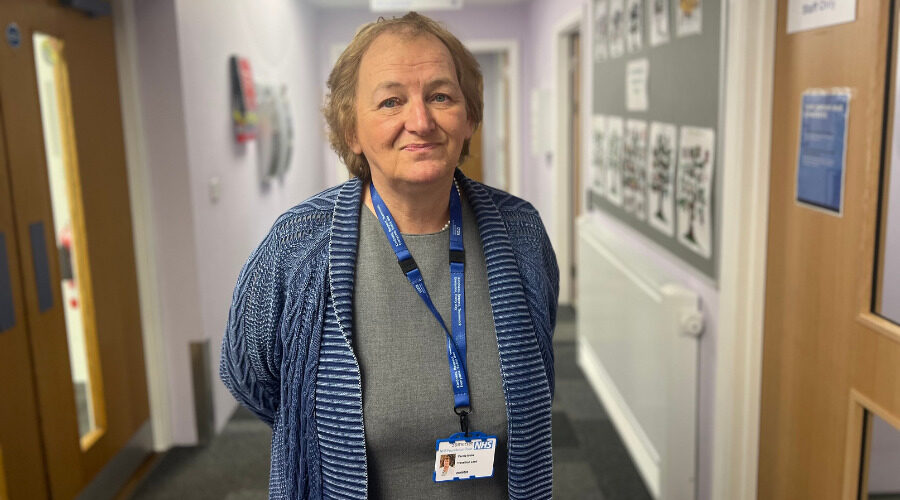
Spotlight
Additional help for young people reaching adult healthcare services
Moving from paediatrics into adult care at 18 years old (or earlier in some cases) can often be a difficult time for young people.
This period of a person’s care is called ‘transition’, which is summed up in one sentence – ‘From the pond to the sea’ – which is also the title of an important Care Quality Commission (CQC) report.
Following the report, the CQC published guidance to help healthcare professionals to support people who are at the point of transition.
That’s where our new transition lead Carole Melia can help, by offering support to professionals working with young people before and after the move into adult services.
Carole has recently joined the trust following a career of 40 years in post-16 education, which included a role as assistant principal for student support at Richard Huish sixth form college in Taunton.
Her role at our trust is fundamentally about improving the experience of young people who have physical or medical needs, and are moving from paediatric services into adult services – it’s very much an advisory post to help colleagues who care for this group of patients.
During her previous working experience, Carole was responsible for supporting young people with learning or medical difficulties to ensure reasonable adjustments were made during their respective moves from school into college, and from college into employment, apprenticeships, or university.
Carole feels her extensive background in education helped to develop her passion for transition. “Following my retirement, I volunteered at Bristol Children’s Hospital as a peer family support worker,” she said. “I spent time with families at their children’s bedsides during some of the most stressful times of their lives.
“While I don’t have contact with children and young people myself in this role, I’m here to create training and support documents, review trust policies, and give colleagues advice on helping young people to understand and navigate the changes – making that sea a little more welcoming.
“It’s important to normalise transition, the move from school to college is well understood, and the change from paediatric to adult services should be as equally understood and relevant to each individual young person’s health needs.
“Having a greater awareness of transition is likely to mean the conditions the young people suffer from are better managed, and we hope this will lead to fewer instances of hospital admissions among this age group, and/or a reduction in dangerous behaviours when they go to university or leave home.
“Much of this depends on the way we go about talking to young people about the transitions and give them an understanding about what to expect when they enter adult services. These conversations will mean they are much more likely to stay safe.”
One of the areas Carole has been working on is developing closer links with Somerset Council to align our practice with its special educational needs and/or disabilities (SEND) reforms.
Mary Trotman, operational manager for our neurodevelopment partnership, said: “We’re running a series of quality improvement projects around transition, one of which is looking at the experiences of young people during outpatient appointments, which could have involved a great deal of trauma, especially if they’ve had surgery as a young child.
“In the near future we will be running a series of transition events at college open days so that when young people go along to a college transition event, we have a presence alongside them."

